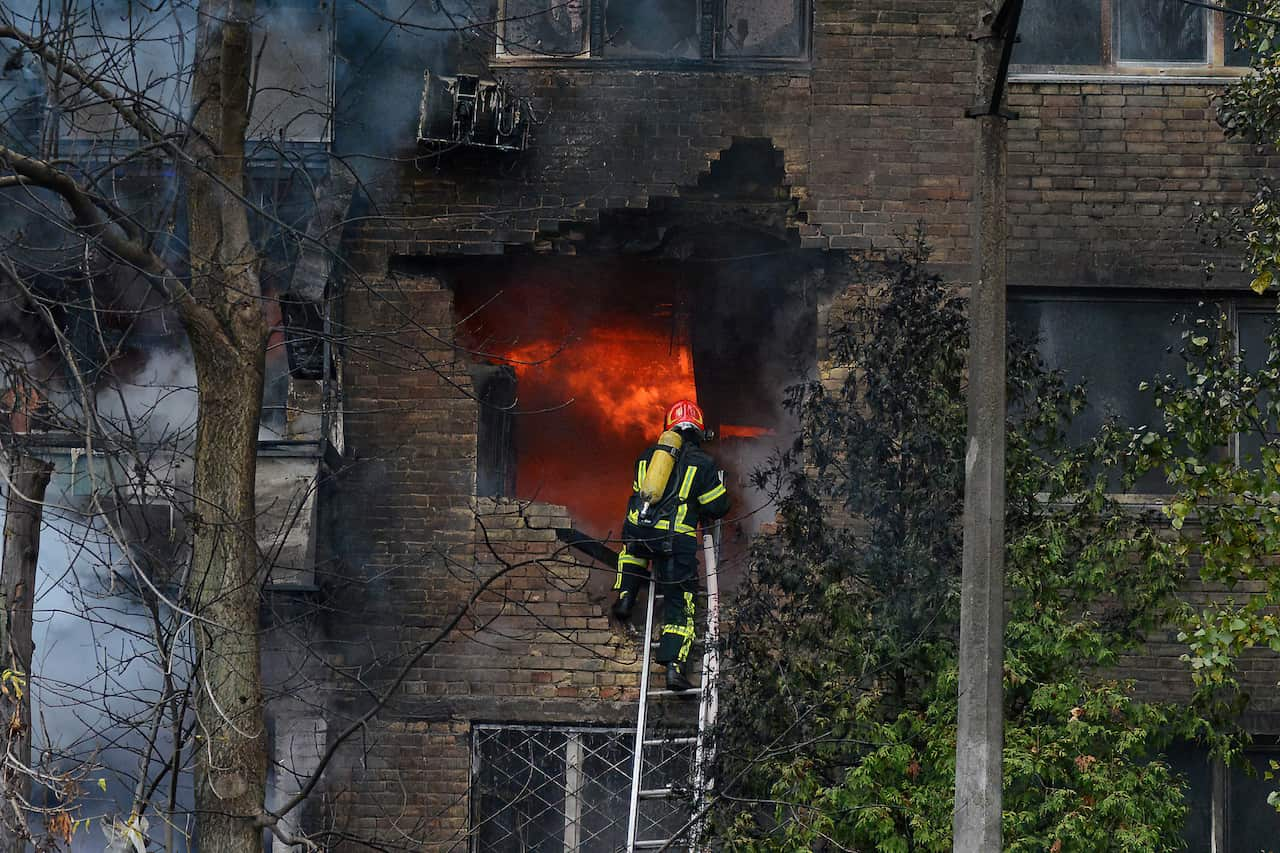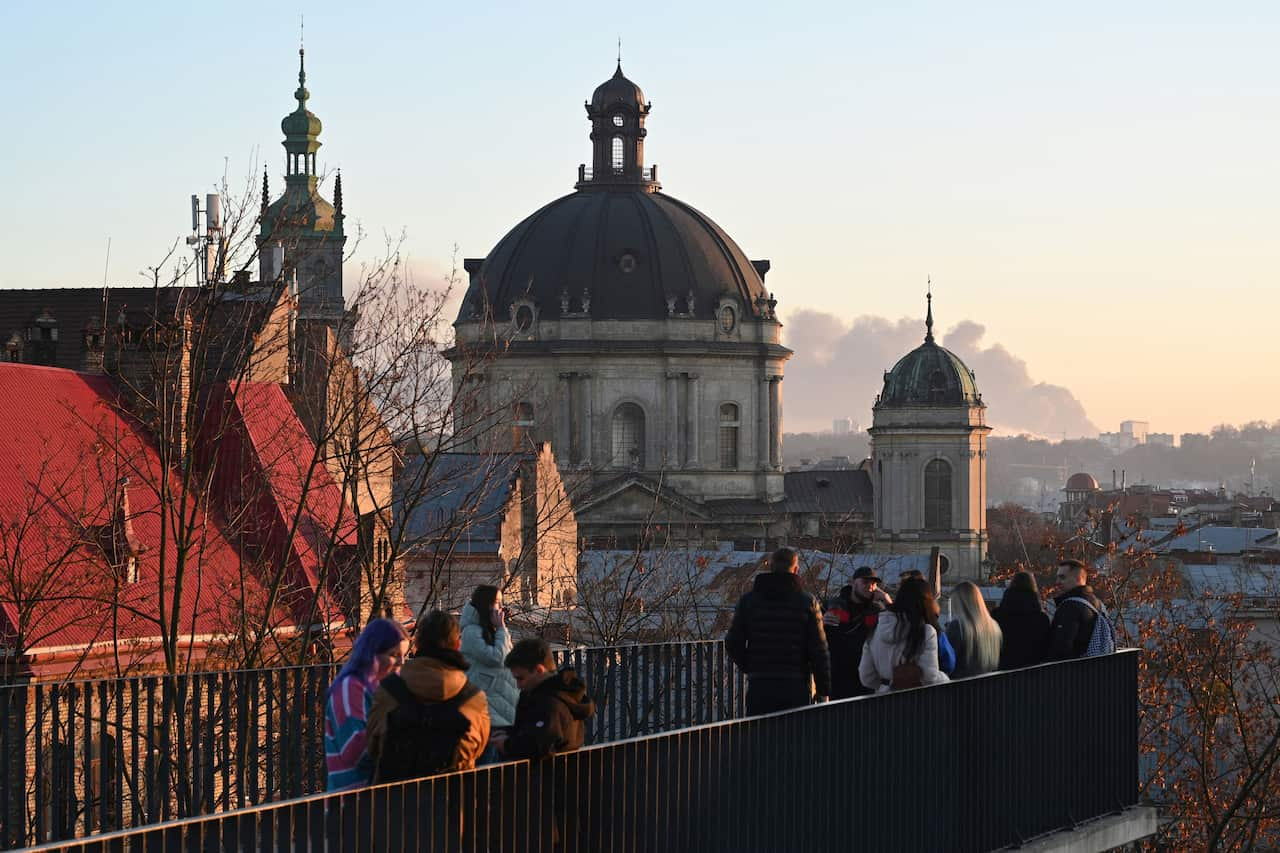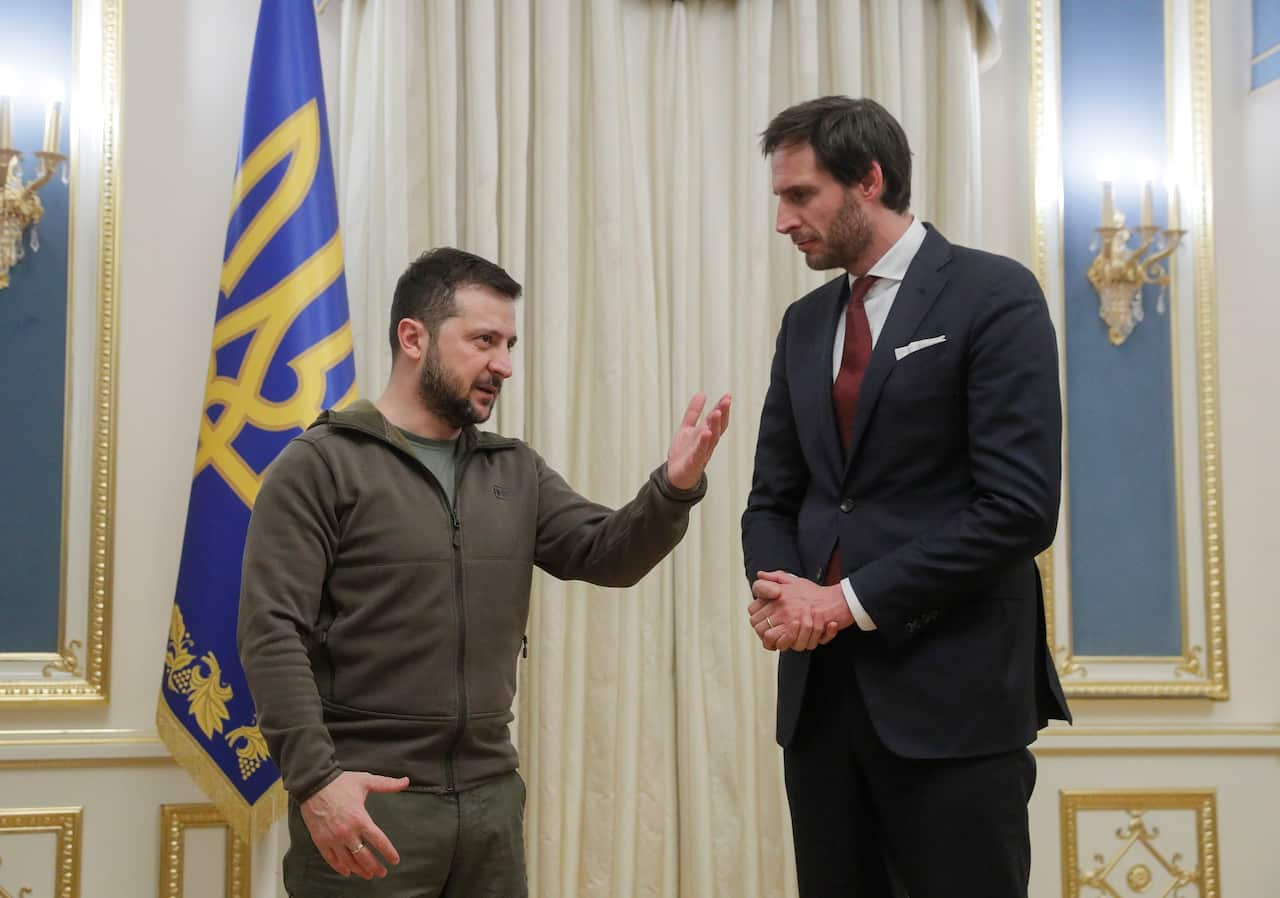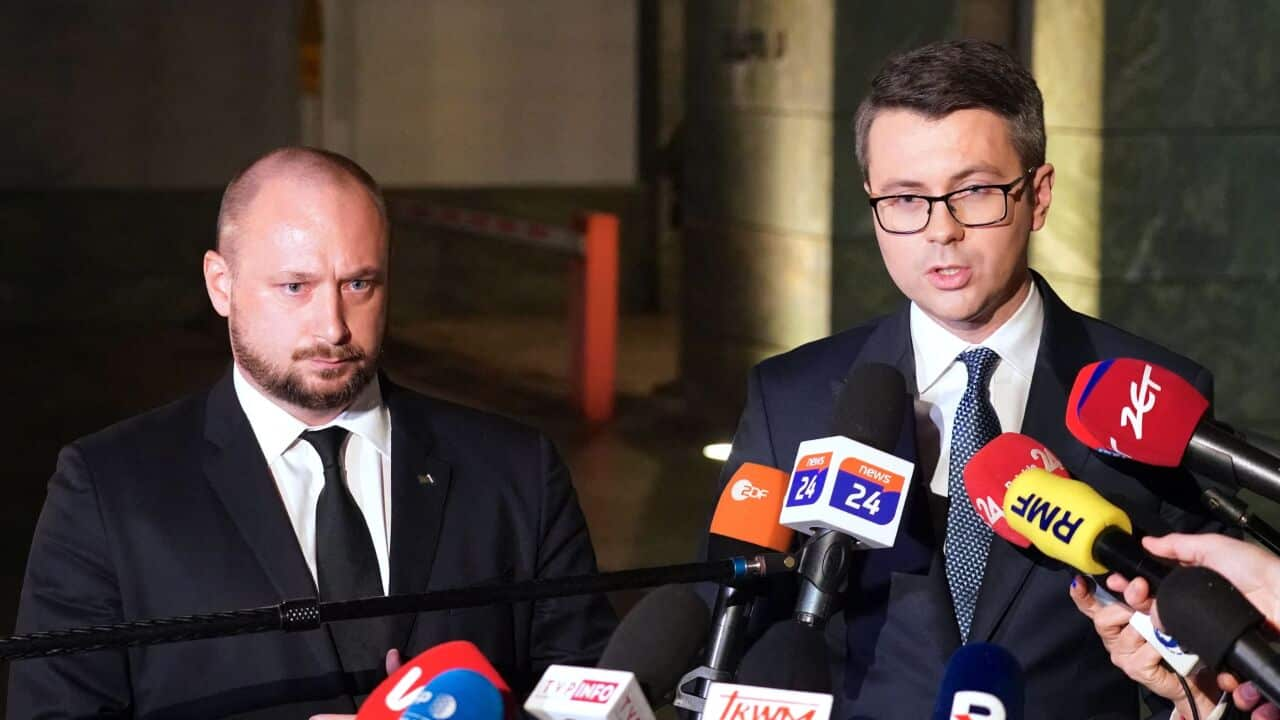KEY POINTS
- Authorities say two people are dead after a Russian-made missle fell on a Polish village.
- Russia has denied it is responsible for the incident.
- Ukraine's leader says the attack will only strengthen his country's resolve to win the war.
Rakieta produkcji rosyjskiej spadła na Polskę we wsi Przewodów pod Ukrainą - poinformowało we wtorek polskie MSZ.
„Rakieta produkcji rosyjskiej spadła, zabijając dwóch obywateli RP” – napisano, dodając, że w związku z incydentem wezwano do MSZ ambasadora Rosji w Polsce.
W oświadczeniu, które pojawiło się kilka godzin po tym, jak pojawiły się doniesienia o śmierci dwóch osób w wybuchu w Przewodowie, około sześciu kilometrów od granicy z Ukrainą, nie określono rodzaju pocisku ani miejsca, z którego został wystrzelony.
Prezydent RP Andrzej Duda powiedział, że nie ma jeszcze ostatecznych dowodów na to, kto wystrzelił rakietę.
„W tej chwili nie mamy żadnych rozstrzygających dowodów na to, kto wystrzelił ten pocisk… najprawdopodobniej był to pocisk wyprodukowany w Rosji, ale w tej chwili wszystko to jest nadal przedmiotem dochodzenia” – powiedział.
Associated Press zacytowała wcześniej wysokiego rangą urzędnika wywiadu USA, który powiedział, że wybuch był spowodowany rosyjskimi pociskami, które wleciały do Polski z Ukrainy.
Pentagon powiedział, że nie może potwierdzić tych doniesień.
„Jesteśmy świadomi doniesień prasowych, według których dwa rosyjskie pociski uderzyły w miejsce w Polsce w pobliżu granicy z Ukrainą. Mogę powiedzieć, że w tej chwili nie mamy żadnych informacji potwierdzających te doniesienia i badamy to dalej, — powiedział rzecznik Pentagonu Patrick Ryder na konferencji prasowej.
Ministerstwo obrony Rosji zaprzeczyło doniesieniom, określając je jako „celową prowokację mającą na celu eskalację sytuacji”.
W oświadczeniu dodano: „Rosyjskimi środkami rażenia nie przeprowadzono żadnych ataków na cele w pobliżu ukraińsko-polskiej granicy państwowej”. Według doniesień szczątki znalezione na miejscu „nie mają nic wspólnego z rosyjską bronią”.
Światowi przywódcy, w tym prezydent USA Joe Biden i premier Wielkiej Brytanii Rishi Sunak, zaoferowali Polsce wsparcie w śledztwie.
Szef NATO Jens Stoltenberg poprowadzi w środę „nadzwyczajne spotkanie”, aby omówić ten śmiertelny incydent.
Prezydent Duda powiedział, że jest bardzo prawdopodobne, że Polska powoła się na artykuł 4 NATO, który pozwala państwom członkowskim zgłaszać do Rady Północnoatlantyckiej każdą budzącą niepokój kwestię, zwłaszcza dotyczącą bezpieczeństwa.
Russia unleashes barrage of missiles across Ukraine
Russia rained missiles on cities across Ukraine on Tuesday after its humiliating withdrawal from Kherson, even as signs grew that its retreating forces were pulling even further back from the Dnipro River in the south.
Air raid sirens blared and explosions rang out in nearly a dozen major cities, in what Ukraine said was the heaviest wave of missile strikes in nearly nine months of war, echoing a pattern in recent weeks of Moscow lashing out far from the front after battlefield losses.
A Ukrainian Air Force spokesman said Russia had launched around 100 missiles into Ukraine by early evening, the largest number since the opening salvoes of the war.
Ukrainian President Volodymyr Zelenskyy said the main target of the missile flurry was energy infrastructure, as before.
"It's clear what the enemy wants. He will not achieve this," he said in a video address on the Telegram messaging app. Kyiv has said such strikes only stiffen its resolve to repel Russian forces that invaded in February.

Firefighters work to put out a fire at a residential building in Kyiv, hit by a Russian missile strike. Source: Getty / Aleksandr Gusev
Other strikes or explosions were reported in cities ranging from Lviv and Zhytomyr in the west to Kryvy Rih in the south and Kharkiv in the east.
Deputy head of Mr Zelenskyy's office, Kyrylo Tymoshenko, said on social media that around seven million households were without power across the country.
Volodymyr Zelenskyy addresses G20 summit
A day after visiting Kherson to celebrate the victory there, Mr Zelenskyy told world leaders there would be no respite in Ukraine's campaign to drive Russian troops out of his country.
"We will not allow Russia to wait it out, build up its forces, and then start a new series of terror and global destabilisation," he said in an address by video link to a summit of the G20 major economies in Indonesia.
"I am convinced now is the time when the destructive Russian war must and can be stopped."
Tuesday's air strikes follow a pattern Russia has maintained since mid-October of carrying out long-range missile and drone attacks on Ukrainian cities after battlefield setbacks. Moscow has said it is targeting energy infrastructure.

Missile strikes also hit the western Ukrainian city of Lviv on Tuesday. Source: Getty / Yuriy Dyachyshyn
Russia is now engaged in a defensive operation in Ukraine following its withdrawal from Kherson, a Western official said on Tuesday, speaking on condition of anonymity.
The war was one focus of the G20 summit, where Western leaders denounced Moscow. Russia is a member and Ukraine is not, but Mr Putin stayed home.
Speaking to the gathering, Mr Zelenskyy reiterated longstanding demands that Russia withdraw all forces, free all prisoners and reaffirm Ukraine's territorial integrity in exchange for peace.

Volodymyr Zelenskyy met with Dutch Foreign Minister Wopke Hoekstra in Kyiv on Tuesday. Source: AAP / Sergey Dolzhenko
Western countries sought a summit declaration that would condemn the war despite Russian opposition and a lack of unanimity. Diplomats circulated a 16-page draft that said: "Most members strongly condemned the war in Ukraine and stressed it is causing immense human suffering and exacerbating existing fragilities in the global economy."
Foreign Minister Sergei Lavrov, Russia's delegation head in Putin's absence, accused the West of trying to politicise the declaration.
Share
